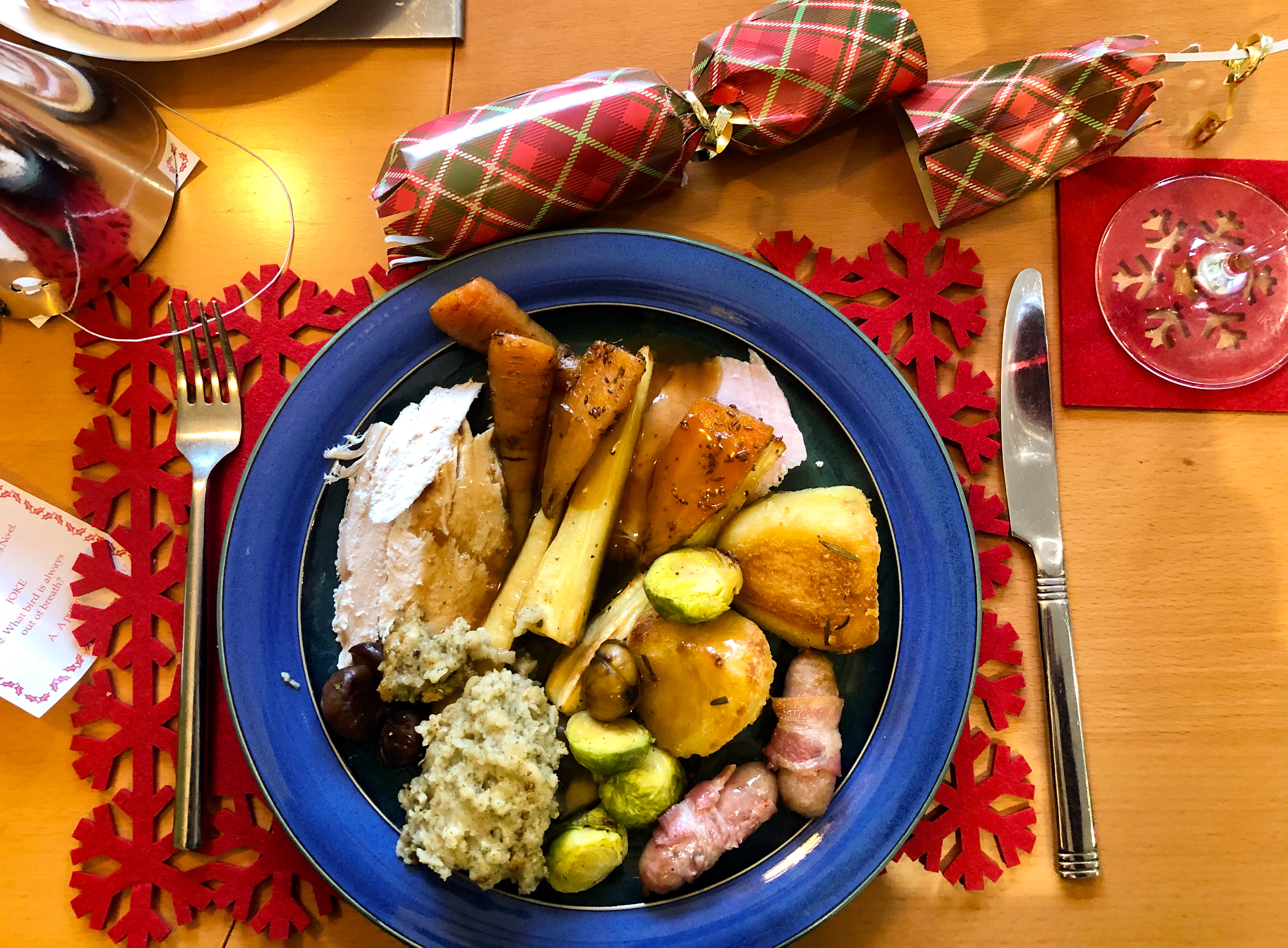Cost of Christmas dinner jumps 6.5% as grocery price inflation rises again
The average Christmas dinner for four now costs £32.57 as grocery price inflation increases - but what does it mean for interest rates?


Get the latest financial news, insights and expert analysis from our award-winning MoneyWeek team, to help you understand what really matters when it comes to your finances.
You are now subscribed
Your newsletter sign-up was successful
Want to add more newsletters?

Twice daily
MoneyWeek
Get the latest financial news, insights and expert analysis from our award-winning MoneyWeek team, to help you understand what really matters when it comes to your finances.

Four times a week
Look After My Bills
Sign up to our free money-saving newsletter, filled with the latest news and expert advice to help you find the best tips and deals for managing your bills. Start saving today!
The average cost of Christmas dinner has risen by 6.5% as analysis shows that grocery price inflation rose again in November.
According to data from retail analysts Kantar, grocery inflation increased at an annual rate of 2.6% in the four weeks to 1 December, up from 2.3% in the previous month.
The jump has further dampened hopes of another interest rate cut from the Bank of England before the end of the year.
MoneyWeek
Subscribe to MoneyWeek today and get your first six magazine issues absolutely FREE

Sign up to Money Morning
Don't miss the latest investment and personal finances news, market analysis, plus money-saving tips with our free twice-daily newsletter
Don't miss the latest investment and personal finances news, market analysis, plus money-saving tips with our free twice-daily newsletter
Kantar said that sales at supermarkets and other grocery stores rose by 2.5% in the four weeks to 1 December as shoppers prepared for Christmas.
Fraser McKevitt, head of retail and consumer insight at Kantar, said: "Monday 23 December is likely to be the single busiest day for the supermarkets this year, although there are clear signs that shoppers are already stocking up their cupboards."
When might interest rates fall further?
The jump in grocery price inflation, on top of other factors, means another interest rate reduction in December at the Bank's next Monetary Policy Committee meeting looks unlikely, based on market expectations. This means interest rates will probably end the year at 4.75%.
Market participants have dialled down their bets after watching the Budget play out. Chancellor Rachel Reeves announced £70 billion in spending policies – an attempt to boost investment in the UK economy and prevent department cuts.
“The increases in government spending and investment announced in the Budget are taking place at a time when the economy is already operating close to capacity,” says Paul Dales, chief UK economist at the consultancy Capital Economics.
“In that situation, the faster rates of GDP growth we expect in light of the Budget will probably spill over into larger rises in prices than we previously thought,” he told MoneyWeek.
The team at Capital Economics previously expected inflation to average out at 2.6% in 2025 and 2% in 2026. They have now adjusted their inflation forecasts upwards slightly to 2.8% and 2.1% respectively.
Reeves unveiled £40 billion in tax hikes in her fiscal statement, with a large part of this coming from an increase to employer National Insurance contributions. Commentators have said this could contribute to higher inflation if businesses pass the costs on to consumers by putting their prices up.
The National Living Wage is also set to rise by 6.7% from April. This is good news for employees but will contribute to rising costs for some businesses. It could also contribute towards wage growth staying high. Wage growth is another driver of inflation.
Even before the Budget, onlookers were expecting less positive inflation figures towards the end of the year. In the latest poll from news agency Reuters, almost two-thirds of economists (46 out of 72) said they expect rates to be kept on hold at the meeting in December.
Get the latest financial news, insights and expert analysis from our award-winning MoneyWeek team, to help you understand what really matters when it comes to your finances.
Chris is a freelance journalist, and was previously an editor and correspondent at the Financial Times as well as the business and money editor at The i Newspaper. He is also the author of the Virgin Money Maker, the personal finance guide published by Virgin Books, and has written for the BBC, The Wall Street Journal, The Independent, South China Morning Post, TimeOut, Barron's and The Guardian. He is a graduate in Economics.
-
 Should you buy an active ETF?
Should you buy an active ETF?ETFs are often mischaracterised as passive products, but they can be a convenient way to add active management to your portfolio
-
 Power up your pension before 5 April – easy ways to save before the tax year end
Power up your pension before 5 April – easy ways to save before the tax year endWith the end of the tax year looming, pension savers currently have a window to review and maximise what’s going into their retirement funds – we look at how
